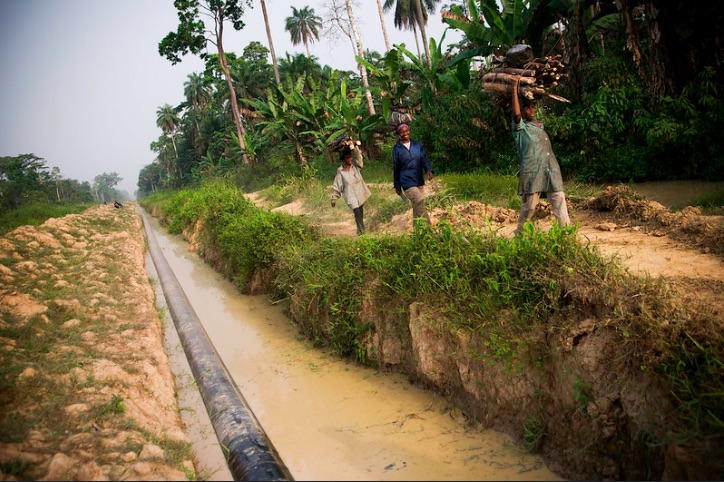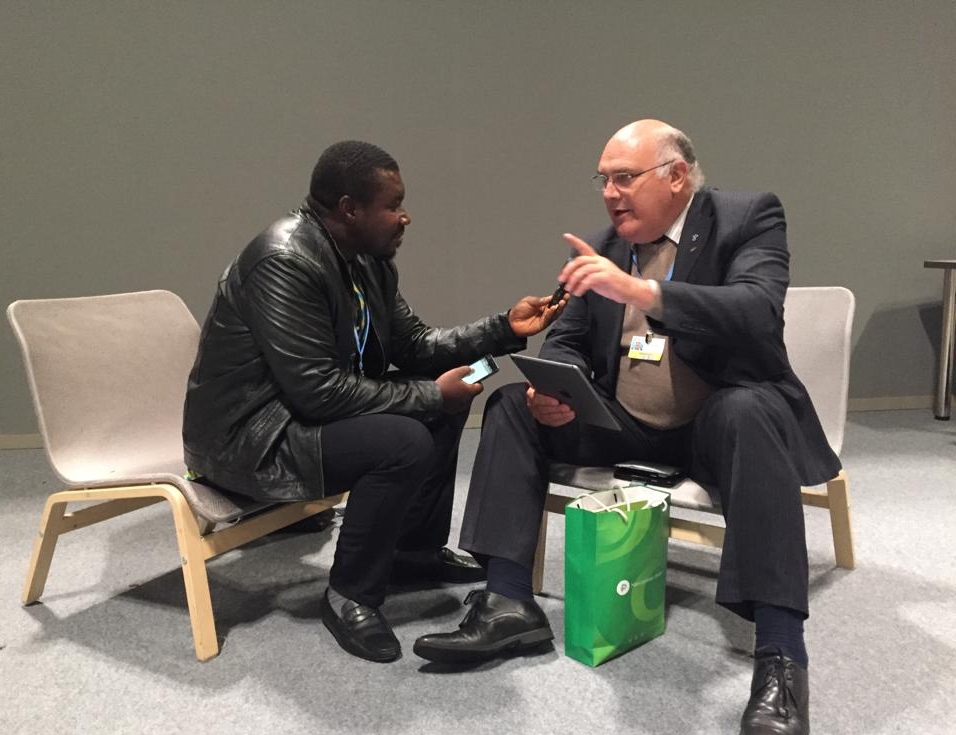
By Kofi Adu Domfeh, in Madrid-Spain
Africa is at the crossroads of taking climate action in the midst of an urgency to meet the continent’s development needs.
As the urgency to act on climate change grows, international climate policies and the advent of low-carbon technologies are reducing the demand for, and value of, fossil fuels.
Carbon tracker estimates that 60-80% of coal, oil and gas reserves could be classified as unburnable if the world is to avoid disastrous climate change.
This puts Africa at risk of asset stranding, especially in mineral resource-rich countries.
A new report by the United Nations University – Institute for Natural Resources in Africa (UNU-INRA) has identified climate change as a key driver to asset stranding in Africa’s natural resources sector, which contributes substantially to export revenues of a majority of African countries.
The research, Africa in the age of stranded assets, argues that managing the risks associated with asset stranding will be fundamental to sustaining government revenues from extractive resources.
“Africa has had a difficult history with its natural resources, where many resource-rich African countries have experienced poor development outcomes. Stranded assets present a new challenge, but also give a unique opportunity for Africa to deepen its drive towards economic diversification”, said Dr. Fatima Denton, Director, at UNU-INRA.
“With this report, we want to send a clear message that the reality of stranded assets is already happening. There is the urgent need for African governments and their partners to find the right balance between Africa’s developmental needs using extractive resources and achieving climate action ambitions”, Dr. Denton added.
The report, launched on the sidelines of the UN climate Change Conference (COP25) in Madrid, Spain, stands on deep contextual research from eight African countries; Angola, Ghana, Namibia, Nigeria, Niger, South Africa, Tanzania and Zambia. It offers voices and insights from the continent often missing from the global conversation on resource use and climate change.
Youba Sokona, Vice Chair of the intergovernmental Panel on Climate Change (IPCC), highlighted the need for African countries to have “vision, institutions, human resources and knowledge,” and to “invest in long term plans”.
He mentioned that African countries that do not have carbon intensive infrastructure need to start their developmental plans with a new outlook. “We do not need to decarbonize, we need to jumpstart.”
The African continent emits less than 4% of the global greenhouse gas emissions, but remains most vulnerable to climate change, according to science and reality.
Yet adaptation and ambitious finance targets for developing countries, as resolved by parties at COP21 Paris, are not prioritized in the current climate negotiations.
The African Group of Negotiators (AGN) is pushing for immediate new targets and to make finance available based on the needs of countries.
The common position of African at COP25 is the push for parties to acknowledge Africa’s special needs and circumstances, as countries are compelled to invest 2-9percent of their annual budgets to local adaptation projects.
As African countries continue to discover new resources, they may be challenged in exploiting these resources for the benefit of its people.
There are arguments therefore that Africa’s should perhaps delay its transition from fossil to renewable while charting a new growth path.
Landry Ninteretse, the Regional Team Leader of 350Africa.org, however wants African decision-makers to heed the call of the people and urgently take action by focusing on solutions that eliminate fossil fuels and transition to clean and sustainable energy.
“At the village, city, district and county levels, people are coming together to challenge the power of the fossil fuel industry. Unions, faith groups and non-environmental groups are joining them to build alternative people-centred solutions,” he observed. “With the continuous energy technology innovations making renewable energy more accessible and affordable, we believe that Africa can and must lead the way in this watershed moment in history, by addressing the climate crisis while creating a more just and equitable world and generating millions of new jobs for its growing youth population powered by technologically advanced renewable sources”.
The UNU-INRA’s report on stranded assets discusses Africa’s development in light of potential asset stranding, in the hopes of alerting African governments to the need for effective natural resource planning towards lower carbon economies.
For civil society activists, Dr. Mithika Mwenda, “we need a radical position of where we need to go as Africa”.












